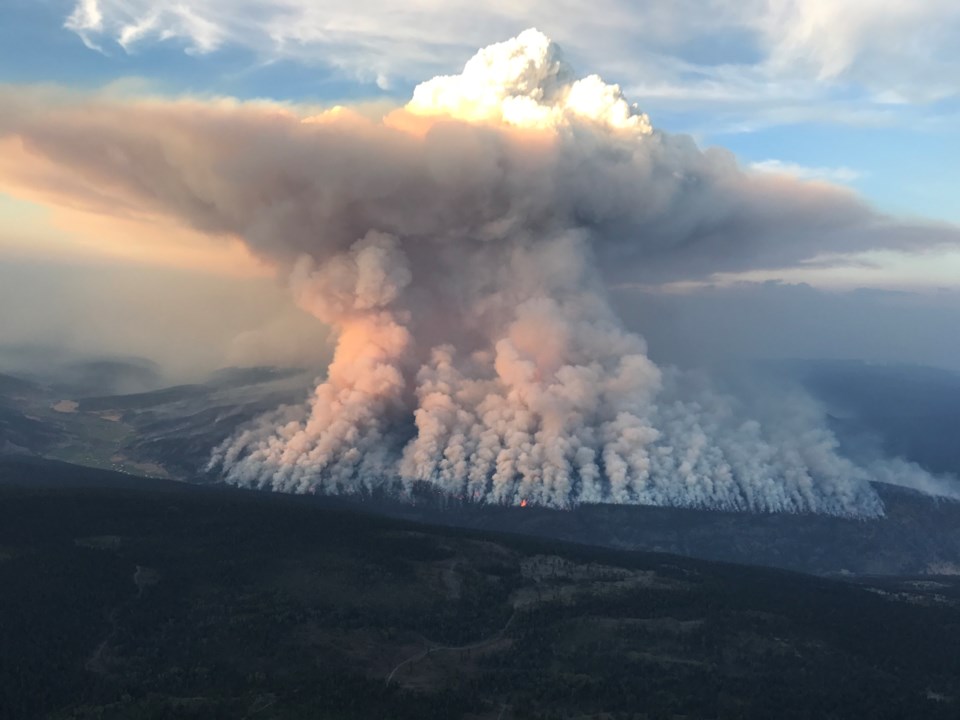Some 260 tickets have been issued to people in B.C. in the last five years for violating the provincial Wildfire Act.
That's according to the Ministry of Forests, who confirmed the number of tickets handed by Natural Resource Officers (NROs) between April 2019 and March 2024, with Glacier Media. NROs are provincial staff who work throughout B.C. and investigate human-caused wildfires.
During the same period, these officers brought 38 cases to administrative hearings for more serious contraventions.
"There are a number of enforcement actions Natural Resource Officers can take when a Wildfire Act violation has occurred. Issuing violation tickets and pursuing administrative enforcement penalties or prosecution are different actions," says a spokesperson with the ministry.
Carelessly flicking a cigarette butt in British Columbia can cause catastrophic damage and spark wildfires.
The majority (60 per cent) of wildfires are caused by lightning in B.C., but flicking a cigarette butt or not putting out campfires are common reasons why wildfires start.
The 2017 Elephant Hill wildfire, which burned 191,865 hectares in B.C.’s south-central Interior region, was caused by someone’s "smoking materials." The classification includes matches, cigars, pipe tobacco, cigarettes and marijuana, according to the BC Wildfire Service.
Today, while many fires are burning across the province, 193 wildfires have been declared out in just the last seven days. Initial attack crews with BC Wildfire Service have been able to suppress 94 per cent of new wildfires.
As of Aug. 6, there were 343 wildfires burning in B.C.; 273 of those are suspected to have been started by lightning (91 per cent), 17 of them are caused by humans (6 per cent), and 10 of them are undetermined.
If a wildfire is deemed to be human-caused, the person could be found liable for wildfire suppression costs; damage to Crown forests and other forest or land resources; fines or administrative penalties; and reforestation costs.
How much is a wildfire fine?
Wildfire violation fines start at $307 and can extend into the tens of thousands of dollars for the cost of fighting the fire.
Between April 2019 and March 2024, NROs fined people a total of $234,336.
The BC Wildfire Service said it is difficult to determine the number of fines and tickets issued for discarding cigarettes as multiple agencies can issue fines. RCMP officers, municipal police officers, the BC Conservation Officer Service and Natural Resource Officers can all issue fines.
Tickets are not issued by BC Wildfire Service but by the Compliance and Enforcement Branch (CEB).
During the administrative hearing determinations between April 2019 and March 2024, $10,877,754 was the value of determinations of the 38 cases.
“These statistics are initial determinations only, as some of the administrative hearings are under appeal, which may take years to complete,” says fire information officer Jaedon Cooke.
The investigations are aimed at reducing the number of human-caused wildfires and "holding those responsible for human-caused wildfires responsible."
During investigations, BC Wildfire Service's wildfire origin and cause investigators work to identify the ignition area and ignition source. Compliance and enforcement NROs are responsible for determining culpability and investigating leads regarding responsible persons.
"Discarded cigarettes are a well-known and documented cause of wildfires,” says Cooke.
Once the fire is confirmed to have been started by a discarded cigarette, CEB will work to identify the people responsible.
Cooke explains how there is a misconception that the cigarette would be "fully consumed" by the fire, but that is not the case.
“A careful search of the wildfire’s ignition area by trained origin and cause investigators will yield evidence of that cigarette,” says Cooke.
The Ministry of Forests says its top priority is keeping people safe, especially as B.C. sees longer wildfire seasons due to climate change causing drier and hotter summers.
Revenues from the fines and administrative penalties go toward provincial revenues and are paid into a special account. This account is used for fire suppression costs related to the contraventions, explains the ministry.
If you see someone starting a wildfire or have information to share about irresponsible behaviour, you are asked to call 1-800-663-5555 or (*5555 from a cellphone) as soon as possible.
Correction: An earlier version of this story incorrectly stated fines are issued by the Compliance and Enforcement Collaborative.



